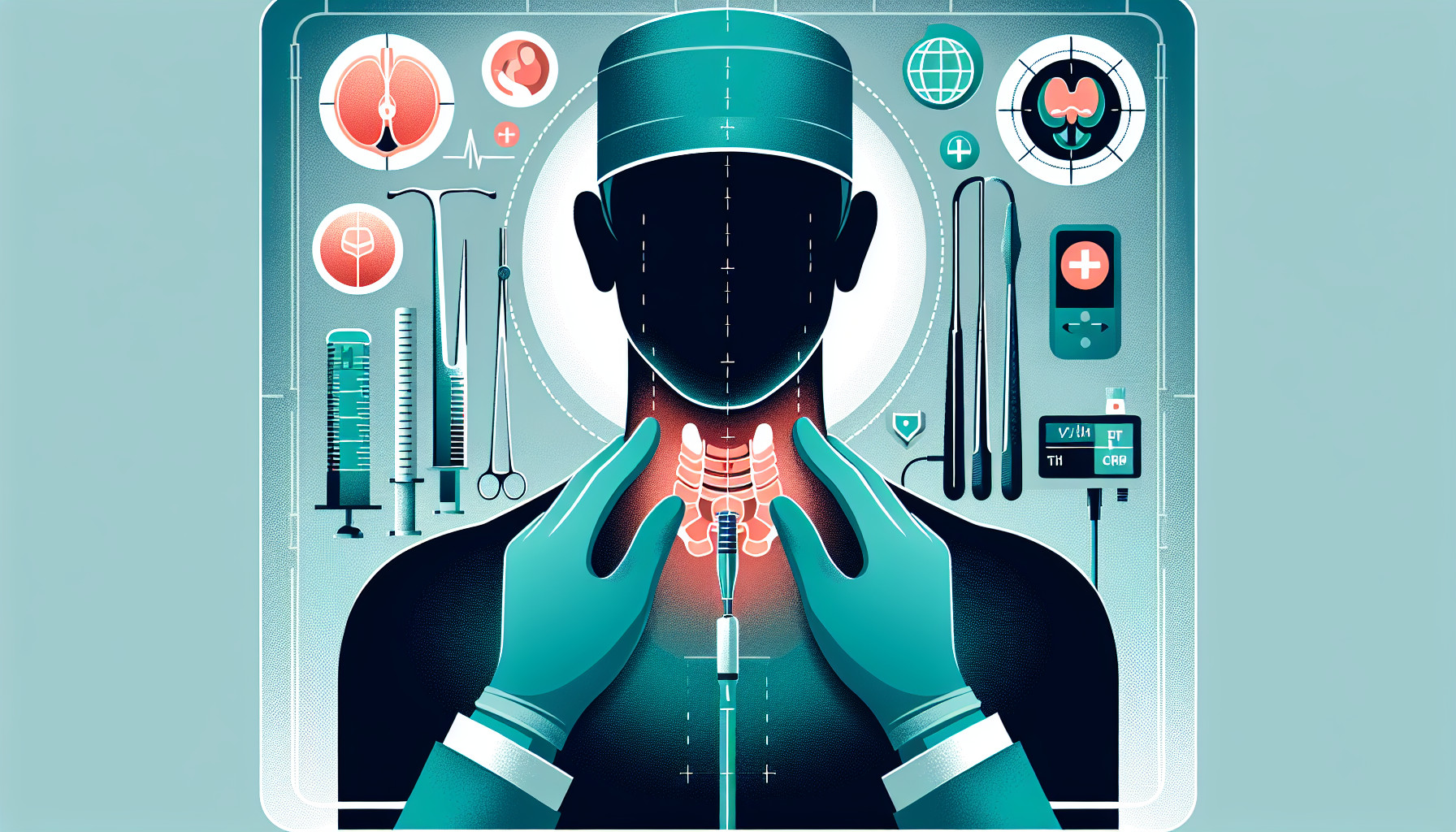Our Summary
This study looked at the factors that make patients with a certain type of kidney disease more likely to be readmitted to the hospital after a specific type of surgery. Researchers examined the records of patients who had a surgery called parathyroidectomy due to renal hyperparathyroidism.
They found that around 17% of the patients had to be readmitted to the hospital after being discharged. The most common reason for readmission was issues with their electrolyte levels, such as low calcium levels. The average time between discharge and readmission was 9 days.
Certain factors made patients more likely to be readmitted. These included being Black or Hispanic, needing home health care or being sent to a skilled nursing facility after discharge, and having a specific type of parathyroidectomy. On the other hand, being older and having the surgery at a hospital that performs a large number of these procedures made patients less likely to be readmitted.
The study suggests that doctors should keep a close eye on patients with these risk factors after they are discharged. This might include regular lab tests to check their electrolyte levels.
FAQs
- What percentage of patients were readmitted to the hospital following parathyroidectomy for renal hyperparathyroidism?
- What were the most common reasons for patient readmission after parathyroidectomy?
- What factors were identified that make patients more likely to be readmitted after parathyroidectomy?
Doctor’s Tip
Additionally, patients should be educated on the signs and symptoms of low calcium levels, such as muscle cramps, tingling in the fingers and toes, and confusion. It’s important for patients to communicate any concerning symptoms to their healthcare provider promptly. Following a healthy diet rich in calcium and vitamin D, as well as staying hydrated, can also help prevent complications after a parathyroidectomy. Regular follow-up appointments with your healthcare team are essential for monitoring your recovery and addressing any potential issues early on.
Suitable For
Patients with renal hyperparathyroidism who are recommended for parathyroidectomy typically have high levels of parathyroid hormone due to chronic kidney disease. These patients may experience symptoms such as bone pain, fractures, kidney stones, and abnormal calcium levels. Parathyroidectomy is often recommended for patients who do not respond to medical management or have severe symptoms related to their high parathyroid hormone levels.
Additionally, patients who have complications related to their elevated parathyroid hormone levels, such as osteoporosis, hypercalcemia, or kidney dysfunction, may also be recommended for parathyroidectomy. Patients who have a history of recurrent kidney stones or have progressive bone disease despite medical management may also benefit from the surgery.
Overall, patients who are recommended for parathyroidectomy are those who have complications related to their renal hyperparathyroidism that are not effectively managed with medication and lifestyle changes. These patients may experience significant improvement in their symptoms and overall health following the surgery.
Timeline
Before parathyroidectomy:
- Patient is diagnosed with renal hyperparathyroidism
- Patient undergoes pre-operative evaluations and tests to determine if surgery is necessary
- Surgery is scheduled and patient receives pre-operative instructions
- Patient undergoes parathyroidectomy surgery
After parathyroidectomy:
- Patient is monitored closely in the hospital for any complications
- Patient is discharged from the hospital with post-operative instructions
- Patient may experience symptoms such as pain, swelling, and difficulty swallowing in the days following surgery
- Patient may need to take calcium and vitamin D supplements to maintain proper levels
- Patient may need to follow up with their doctor for regular check-ups and lab tests to monitor their calcium levels
- Patient may need to make lifestyle changes to prevent future complications related to hyperparathyroidism
What to Ask Your Doctor
- What is the reason for recommending a parathyroidectomy in my case?
- What are the potential risks and complications associated with this surgery?
- How experienced are you in performing parathyroidectomies?
- What is the expected recovery time after the surgery?
- What kind of follow-up care will be needed after the surgery?
- How will my electrolyte levels be monitored post-surgery to prevent readmission?
- Are there any specific factors in my case that could increase the likelihood of readmission to the hospital?
- What signs or symptoms should I watch for that may indicate a complication post-surgery?
- How can I best prepare myself physically and mentally for the surgery and recovery process?
- Are there any lifestyle changes or medications I should consider post-surgery to support my recovery and overall health?
Reference
Authors: Lee JD, Kuo EJ, Du L, Yeh MW, Livhits MJ. Journal: World J Surg. 2019 Feb;43(2):534-539. doi: 10.1007/s00268-018-4823-3. PMID: 30341470
